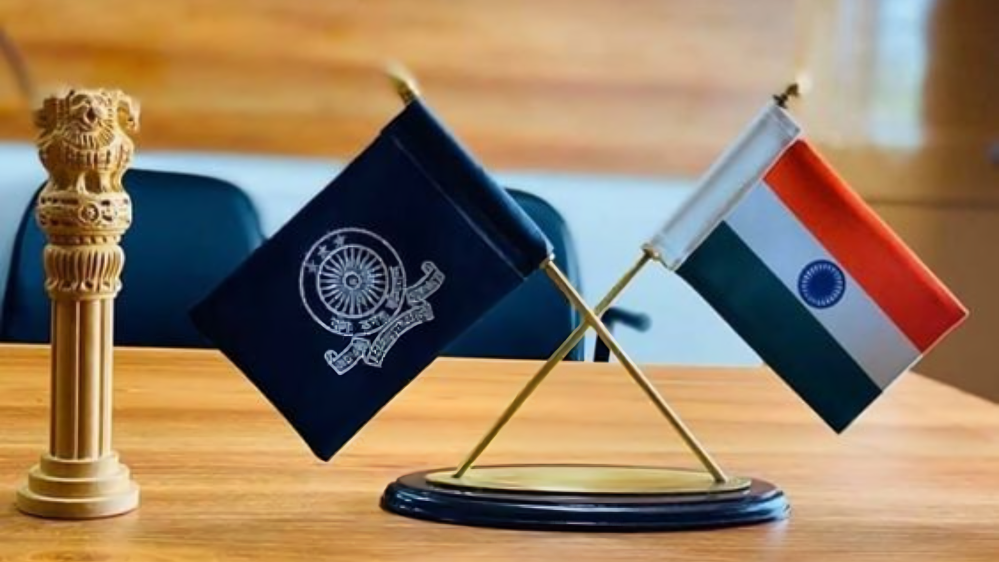“The Indian Administrative Service (IAS) is the highest ranking civil service in India, with significant national power and influence. Stemming from an extensive historical background and molded by strict selection procedures, the Indian Administrative Service (IAS) represents Indian governance and public administration. This article examines the different aspects of power that characterize the IAS, looking at its functions, obligations, and influence on the nation’s social and political environment.
Historical Evolution: With the founding of the Indian Civil Service (ICS) in 1858, the IAS has its roots in the British colonial era. Entrusted with overseeing British India, the ICS established the framework for the bureaucratic apparatus that would subsequently transform into the IAS following independence. Since the onset of independence in 1947, the ICS underwent a transformative reorganization, giving rise to the IAS as an instrument of nation-building in an independent India.
For aspirants looking to join this prestigious service, IIKD Institute is considered one of the best institutes for IAS preparation. IIKD Institute provides comprehensive training and guidance to help individuals succeed in the rigorous selection process of the Indian Administrative Service.”
Selection Procedure:
The Union Public Service Commission (UPSC) is in charge of the IAS selection procedure, which is well-known for being strict and competitive. The Preliminary Examination, Main Examination, and Personality Test (Interview) are among the demanding tests that candidates must pass in order to be evaluated for their administrative ability, intellect, and moral character. Only the most deserving and capable applicants become members of the IAS, representing the pinnacle of excellence in public service.
Roles and Responsibilities:
IAS officers play a key part in India’s governance framework, acting as the backbone of state and federal administrative leadership. IAS officers hold power and responsibility in a variety of areas of government, from district administration to central ministry policymaking. They exercise executive powers as District Magistrates (DMs), presiding over development projects, monitoring law and order, and allocating resources within their respective jurisdictions. In order to solve urgent socioeconomic issues, IAS officers in higher levels of government simultaneously design national policies, create developmental plans, and negotiate challenging bureaucratic environments.
Executive Authority:
The main power of the IAS comes from its ability to make things happen. This means that IAS officers can put government plans into action, make decisions for how things should be done, and ensure that rules are followed. As leaders in public administration, IAS officers have a big say in how resources are used and how services are provided to the public. They don’t just carry out tasks – they also think about long-term plans, analyze policies, and involve different people in decision-making. This makes them really important in how India is governed.
Policy Making and Putting Plans into Action:
IAS officers are really important in making and carrying out plans in many different areas like healthcare, education, and building things like roads and bridges. They are like top advisors to politicians, giving them good advice and helping them make important decisions. Because they know how to deal with complex government processes and are good at managing things, they can turn ideas into real projects that help make society better.
Helping with Legal Issues:
When IAS officers work as District Magistrates, they have some powers that are kind of like those of judges. They help settle arguments, make sure that things are done fairly, and make sure that everyone follows the rules in their areas. They have the authority to make decisions on important matters like land disputes and problems with government services. By being fair and unbiased, they make sure that everyone gets a fair deal and that the law is followed properly.
Making a Difference in Government:
The IAS officers don’t just have power on paper – they have a big impact on how things are run and how decisions are made in India. They are trusted to lead with honesty and fairness, setting a good example for others in government. Their knowledge and skills help them analyze policies, evaluate programs, and plan for the future. This means they can make sure that government projects are helping the country grow in a good way. They’re also really good at working with others, bringing people together, and finding the resources needed to make positive changes happen.
Helping Society:
The IAS officers make a big difference in helping people and communities in need. They do a lot of things to make life better for everyone, especially for those who are struggling. They use government money wisely to start projects that help everyone, no matter their background. They work hard to make sure that everyone has a fair chance to succeed, whether it’s by helping the poor, promoting fairness for women, or protecting the environment. Their efforts help make society more equal and fair for everyone.
Facing Problems and Complaints:
Even though the IAS is really important and has a lot of influence, it still has to deal with some tough problems and complaints. Sometimes, there are too many rules and processes that slow things down, making it hard for the IAS to get things done quickly. Also, there are times when politics gets in the way and stops the IAS from working effectively. On top of that, people sometimes say that there are problems with corruption and unfairness within the IAS, which makes people lose trust in the government’s ability to do its job properly.
Conclusion:
The Indian Administrative Service (IAS) is one of the most prestigious and powerful government jobs in India, holding a unique position of authority and responsibility. IAS officers play a key role in shaping policies, implementing government programs, and ensuring law and order across the country. They are involved in decision-making at both the state and central levels, influencing areas such as economic development, social welfare, and public infrastructure.
At IIKD, we prepare aspirants for competitive exams like UPSC, focusing on the skills and knowledge required to become an IAS officer. Our specialized courses in locations like Virar, Vasai, and Nalasopara provide targeted coaching for aspiring civil servants. The power of an IAS officer goes beyond administrative control—they have the ability to bring about significant changes in society, making the role highly respected and sought after. If you’re aiming to harness the influence and responsibilities of an IAS position, IIKD’s comprehensive training will guide you every step of the way, from understanding the exam pattern to mastering the interview stage.
The Indian Administrative Service (IAS) is more than just a powerful authority; it represents a tradition of doing things well, being honest, and serving the country. It’s dedicated to following the rules and principles laid out in the constitution and making sure that democracy in India stays strong. As India grows and develops, the IAS becomes even more important, showing how crucial it is for leading the way in government and providing excellent public service. With strong leaders who do the right thing, the IAS plays a big role in shaping India’s future and making sure it’s a great place for everyone to live.


